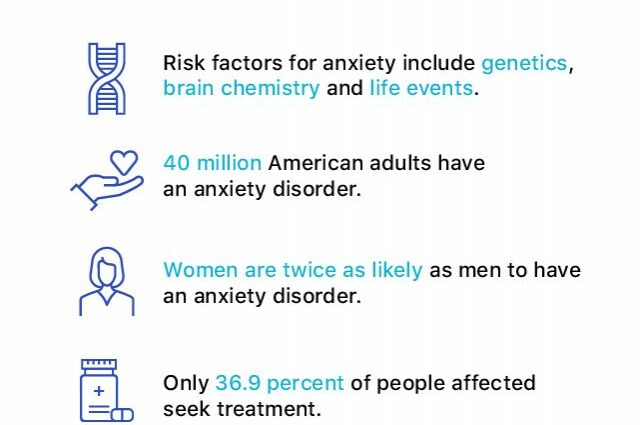Contents
5 therapies to relieve anxiety

Cognitive behavioral therapy (CBT) to calm anxiety
Who is CBT for?
CBT is primarily intended for people prone to anxiety disorders. It can help people with panic disorder, generalized anxiety disorder, post-traumatic stress disorder, obsessive-compulsive disorder, social phobia or other specific phobias. It is also effective in cases of depression and related problems such as sleep disorders, states of dependence, or eating disorders. Children can do anything to follow a CBT (bedwetting, school phobia, behavior problems, hyperactivity…).
How does CBT work?
CBT is not a fixed therapy, it is adaptable according to each patient and is still the subject of developments. It takes the form of individual or group sessions. Overall, to explain the patient’s disorders, CBT is less interested in his past history than in his present situation – his social and professional environment, his beliefs, emotions and sensations -. As its name suggests, Behavioral and Cognitive Therapy aims to modify the patient’s thoughts so that they positively influence his behavior. It starts from the principle that it is our thoughts, our interpretations of events that condition our ways of being and acting. This therapy seeks to confront the patient with stressful situations, to modify the beliefs and interpretations which are at the origin of his fears, and to revalue his self-esteem. To acquire new behaviors, the patient is required to do a certain number of exercises – by means of the imagination, then real situations – which makes him a real player in his recovery. He also has the possibility of exercising between two sessions. The therapist then takes on the role of partner, even of “coach” on the patient’s path to recovery, by asking questions, providing information, and enlightening him on the irrationality of his thoughts and behavior.
How long does a CBT last?
CBT is generally a short course of therapy, from a few weeks to a few months, with an average of one session per week. However, it can last longer depending on the case. Individual sessions last between half an hour and an hour, and group sessions between 2h and 2h30.
References A. Gruyer, K. Sidhoum, Behavioral and Cognitive Therapy, psycom.org, 2013 [consulted on 28.01.15] S. Ruderand, CBT, behavioral and cognitive therapies, anxiete-depression.fr [consulted on 28.01.15] |










